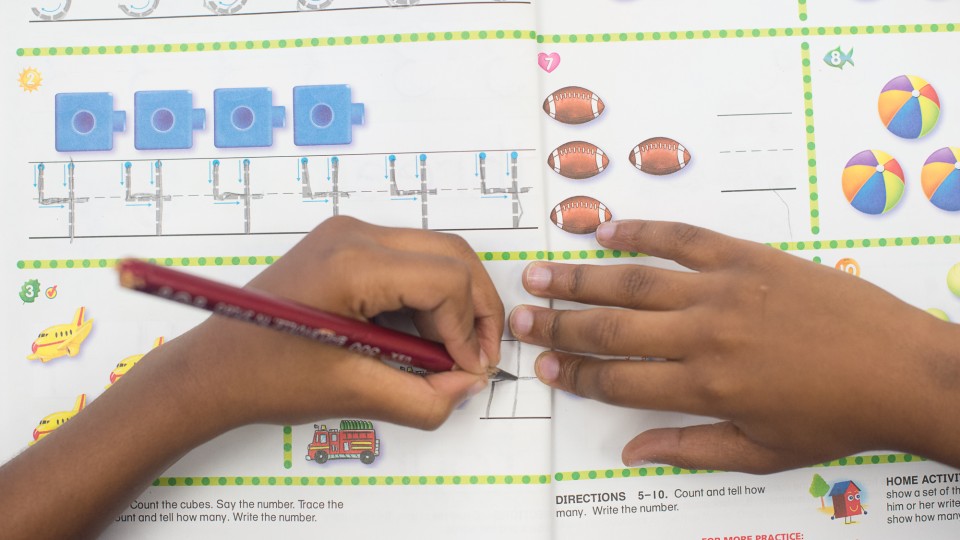How young is too young to start testing?
- December 4, 2015
- / Reggie Dogan
- / education

There was time not so long ago when the idea of preschool didn’t exist.
There was no such thing as early childhood education since mothers didn’t work. Their primary job was to stay home and be their children’s first teacher.
Those days are long gone, and today communities across the country are in battles to acquire funding for full-day preschool programs.
There is a growing demand for preschool funding because these years for children have become increasingly crucial for academic development. If standardized testing is the wave of the future, there is only a matter of time before there are kindergarten placement exams.
Growing concerns over a troubling education system, fueled by poor student performance and sub-par graduation rates, have re-energized the call for early academic instruction as a remedy for inadequate teaching and learning later on.
In Escambia County, the kindergarten readiness rate is 66 percent — which means about one-third of children aren't ready for school. Kindergarten readiness is one of 16 metrics in the Studer Community Institute's Pensacola Metro Dashboard, which provides a snapshot of the community's social, economic and educational well-being.
A University of Virginia study shows that kindergarten teachers today spend much more time teaching academic skills — skills that are often tested — than they did 15 years ago. And they spend significantly less time on the arts and music.
That’s because all too often kindergarten teachers are under enormous pressure to teach their children numbers and letters and to administer standardized tests.
In some pre-K and kindergarten classes, children are assigned homework in addition to work sheets they fill out in class.
In other more developmentally appropriate classrooms, children are busy taking care of plants and animals, experimenting with sand and water, drawing and painting, listening to songs and stories, and engaging in dramatic plays and puppet shows.
It’s hard to believe that these young children learn more from work sheets than they do from engaging in these age-appropriate exercises.
As much as we need standards and accountability to measure children’s abilities and progress, there is growing opposition to standardized assessments for young children.
Nancy Carlsson-Paige, an early childhood expert, is astounded at the amount and type of testing that kindergartners are subjected to.
The author of “Taking Back Childhood,” Carlsson-Paige also is the recipient of numerous awards, including the Legacy Award from the Robert F. Kennedy Children’s Action Corps for work on behalf of children and families.
In a speech she gave after accepting an award given by the nonprofit National Center for Fair and Open Testing, Carlsson-Paige poignantly tells what has happened in the world of early education in the current era of high-stakes testing, saying, “Never in my wildest dreams could I have foreseen the situation we find ourselves in today.”
In a Washington Post education blog, “How ‘twisted’ early education has become — from a child development expert,” Valerie Strauss published Carlsson-Paige’s speech in opposition to standardized testing for kindergartners.
Taking multiple-choice tests based on scripted, highly academic curriculum is not only developmentally inappropriate for 4, 5 and 6-year-olds, it defies common sense, Carlsson-Paige maintains.
Read more on Carlsson-Paige’s concerns about early education standardized tests here.
 CivicCon launches with a look at good growth in cities
CivicCon launches with a look at good growth in cities
 Building stronger brains one baby, one parent at a time
Building stronger brains one baby, one parent at a time
 SCI debuts commercial on Early Learning City
SCI debuts commercial on Early Learning City
 Entrecon: World class speakers and an opportunity to sharpen skills
Entrecon: World class speakers and an opportunity to sharpen skills
 PYP Quality of Life survey 2017
PYP Quality of Life survey 2017
 EntreCon Pensacola 2016: A look back
EntreCon Pensacola 2016: A look back
 Leadership tip: getting better employee takeaways
Leadership tip: getting better employee takeaways
 Leadership tip: be interested instead of interesting
Leadership tip: be interested instead of interesting
 Leadership tip: delivering difficult messages
Leadership tip: delivering difficult messages
 Brain Bags boost Arc, Early Childhood Court programs
Brain Bags boost Arc, Early Childhood Court programs